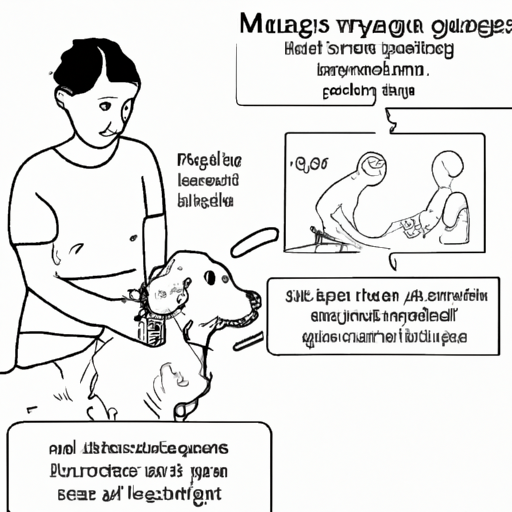Caring for your beloved pet is a responsibility that demands attention and love. If your dog is suffering from fluid in its lungs, it can be a very distressing time. You may feel helpless, but there are natural remedies that can be used to alleviate your dog’s discomfort. These methods should be used in conjunction with veterinary advice, not as a replacement.
H2: Understanding the Condition
Fluid in a dog’s lungs, medically known as Pulmonary Edema, can be a serious condition. It is characterized by the accumulation of fluid in the lungs, which hinders the dog’s ability to breathe efficiently. This fluid build-up can be caused by various factors such as heart disease, infection, or injury.
Symptoms may include:
* Coughing
* Difficulty breathing
* Fatigue
* Loss of appetite
H2: Natural Remedies for Fluid in Dog’s Lungs
Natural remedies can serve as an adjunct to veterinary care and are often beneficial in reducing symptoms and improving your dog’s overall health.
- Herbal Remedies: Certain herbs such as licorice root and mullein can help reduce inflammation and act as a natural diuretic to help remove excess fluid.
- Dietary Changes: A low-sodium diet can reduce fluid retention. Fresh foods rich in antioxidants can also boost your dog’s immune system.
- Hydrotherapy: Mild physical activity, like swimming, can help improve lung function and reduce fluid build-up.
| Natural Remedy | How it Works |
|---|---|
| Herbal Remedies | Reduces inflammation and helps remove excess fluid |
| Dietary Changes | Reduces fluid retention and boosts immune system |
| Hydrotherapy | Improves lung function and reduces fluid build-up |
H2: When to Seek Veterinary Care
While natural remedies can be helpful, it is crucial to seek professional veterinary care if your dog’s condition worsens or does not improve. Your vet can provide necessary treatments such as oxygen therapy, diuretics, or surgery in severe cases.
H2: Prevention is Better Than Cure
Ultimately, prevention is the best way to protect your dog from developing fluid in its lungs. Regular veterinary check-ups, a balanced diet, and regular exercise can go a long way in maintaining your dog’s overall health.
H2: Frequently Asked Questions (FAQs)
1. Can diet really help manage fluid in my dog’s lungs?
Yes, a diet low in sodium can help reduce fluid retention.
2. How can I tell if my dog has fluid in its lungs?
Common symptoms include coughing, difficulty breathing, and loss of appetite.
3. Should I stop giving my dog its prescribed medication while using natural remedies?
No. Natural remedies should complement, not replace, veterinary-prescribed treatments. Always consult your vet before making any changes to your dog’s medication.
4. How often should my dog undergo hydrotherapy?
This can vary based on your dog’s condition, but generally, 2-3 times a week can be beneficial. Always consult your vet before starting any new therapy.
Your dog’s health is a priority. Remember, while natural remedies can help, they are not a substitute for professional veterinary care.



